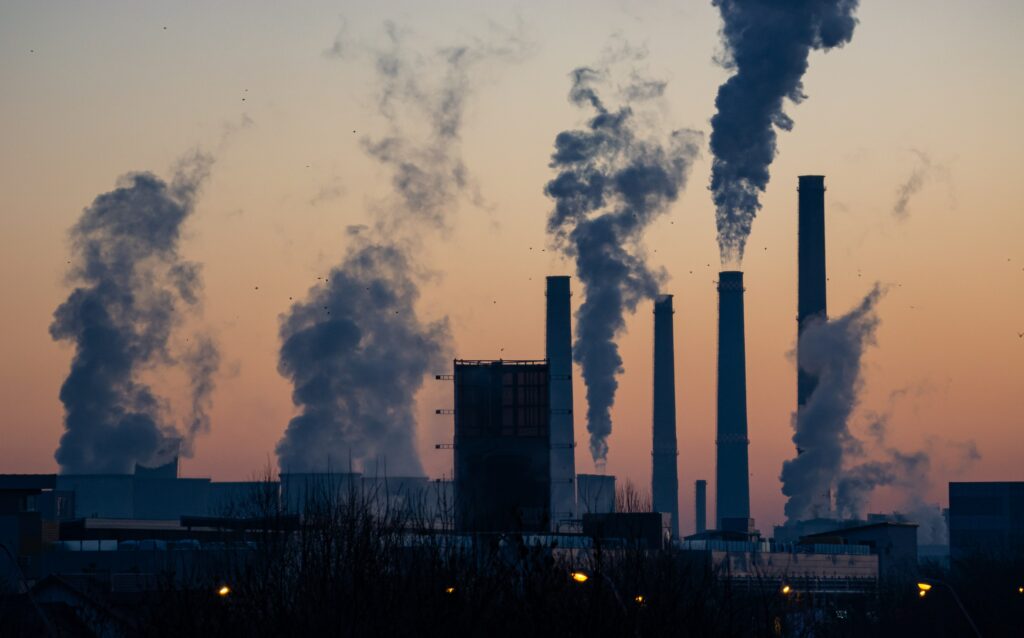In July 2022, Pennsylvania officially became a participant in the Regional Greenhouse Gas Initiative (RGGI). RGGI is a cap-and-trade market for carbon dioxide emissions. It requires the operators of fossil fuel power plants (including coal) to purchase one credit for every ton of carbon dioxide they emit into the atmosphere. Every year, the amount of credits available for sale regionally decreases – this is the mechanism by which emissions are “capped.” The credits are auctioned quarterly and can be traded on an open market at any time – the “trade” portion of the program.
Since “joining” RGGI, three auctions took place that could have generated money for energy efficiency and clean energy programs. The latest occurred on March 8, 2023, where each carbon dioxide credit sold for $12.50. At this price, Pennsylvania could have seen over $195 million in revenue.1Based on the 15,991,000 allowances committed in the September 2022 auction before Pennsylvania’s participation was halted. Totaling all three auctions, we have forfeited over $595 million that could have been used to monitor, reduce emissions, deploy renewable energy, and invest in local communities which are impacted by the transition away from fossil fuel reliance.
However, two separate cases are making their way through the Pennsylvania judicial system preventing Pennsylvania from participating in the auctions and RGGI. Coal and labor groups brought one case, and the State Republican legislators brought the other. The Commonwealth Court heard both cases in November 2022. The suit by coal and labor groups was rendered moot and dismissed because they failed to post a $100,000 bond. The Pennsylvania Supreme Court will hear the Republicans’ case on May 24, 2023, and whether we will remain in RGGI is unclear until it rules.
The uncertainty surrounding the RGGI court cases makes it hard for the state, local communities, and power plants to plan for the future. Recently, Homer City Generation, a coal-fired power plant in Homer City, PA, announced they would close their doors and lay off their 129 workers – citing regulatory uncertainty as one of several reasons, such as unseasonably warm winters.
Homer City joins other coal-fired power plants across the state that have announced they will shut down or transition to a different fuel source. Two other plants, Keystone and Conemaugh, in Indiana County will be retired by 2028 because it is not worth it to them to comply with EPA coal ash standards. Two additional power plants, Montour and Brunner Island, plan to switch their power generation to natural gas.
The closure of power plants understandably concerns many. With every plant that closes, people lose jobs, communities lose significant tax dollars, and there are worries about grid reliability and utility rate increases. However, this trend will continue whether Pennsylvania joins RGGI or not. While coal was once the largest energy source, for the first time in 2020, renewables generated more energy than coal. In 2021, because of the boost for renewables in the Inflation Reduction Act, 99% of coal plants became more expensive to run than replacing their energy generation capacity with new wind or solar. Thus, the closure of coal plants is not the result of RGGI, but rather a signal that coal operation is not as competitive as other power sources. RGGI is not the answer here, but it can provide one tool to aid in the transition these coal communities are facing: financial resources.
Currently, no state program evaluates the economic effects of coal plant closures or helps transition affected workers. With legislation, RGGI funds could create such a program. During the last legislative session, Senator Commita introduced that legislation. Her bill would send 37.5% of RGGI funds to the communities where fossil-fuel-fired power plants have shuttered to provide unemployment compensation, retrain and transition workers, clean up the environment, and spur new economic development. Other monies distributed in the bill would fund transportation, environmental health, utility assistance, emissions reductions, renewable deployment, and more. However, that bill did not pass, and no such bill has been introduced in the legislature this session.
Currently, RGGI funds would help cut emissions and provide new renewable energy jobs. So RGGI can be a more effective piece of the just transition, our legislators must introduce and pass legislation to allocate RGGI funds to help displaced workers and communities. Otherwise, workers like those at Homer City and the other transitioning power plants are at risk of being left behind.
- 1Based on the 15,991,000 allowances committed in the September 2022 auction before Pennsylvania’s participation was halted.


